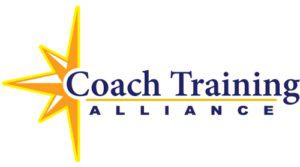Building a successful career often involves navigating career transitions, developing new skills, and setting achievable goals. Many individuals look for guidance and support to help them make strategic decisions and cultivate professional growth. Career coaches fill this vital role, offering insights, accountability, and encouragement to clients who are seeking clarity in their career paths.
Pursuing a career coach certification can be an excellent way to enhance your skills, marketability, and credibility in this field. Below is an in-depth look at why certification matters, what it entails, and how you can get started on a path that not only enriches your coaching practice but also delivers tangible results for your clients.
Why Pursue a Career Coach Certification?
- Credibility and Trust
Earning a reputable certification validates your expertise. Prospective clients and employers often look for coaches who possess credentials from recognized institutions, giving them confidence in the coach’s abilities and ethical standards. - Structured Learning Path
Certification programs provide a well-organized curriculum that covers essential coaching techniques, methodologies, and best practices. This structured approach ensures you gain a comprehensive skill set rather than piecemeal knowledge. - Career Advancement
Certified career coaches frequently command higher rates and attract more consistent clientele. Organizations also tend to prioritize hiring or partnering with certified professionals for in-house career development programs. - Professional Networking
Certification programs often include interaction with peers, mentors, and experienced instructors. These connections can lead to valuable collaborations, referrals, and long-term support as you build your coaching practice. - Personal Growth
Going through a rigorous training and certification process prompts reflection on your own career path, strengths, and areas for development. This self-awareness positively influences the way you guide clients.
Essential Skills Covered in Career Coach Certification Programs
- Assessment and Goal-Setting
- Learning to administer and interpret career assessments.
- Guiding clients to set SMART (Specific, Measurable, Achievable, Relevant, Time-bound) goals.
- Helping clients develop realistic timelines to accomplish these goals.
- Strategic Planning
- Teaching resume writing, LinkedIn optimization, and personal branding.
- Providing insights on job market trends, networking strategies, and interview preparation.
- Encouraging clients to map out long-term plans for career progression.
- Active Listening and Communication
- Cultivating empathy and rapport-building techniques.
- Practicing reflective listening to ensure you fully grasp client concerns.
- Using powerful questions to help clients gain clarity about their aspirations.
- Mindset and Motivation
- Exploring techniques for overcoming career-related anxieties and fears.
- Coaching clients on resilience, adaptability, and maintaining a growth mindset.
- Tailoring motivational strategies to individual client personalities.
- Ethics and Professional Standards
- Adhering to a recognized code of ethics.
- Understanding confidentiality, conflicts of interest, and boundary-setting.
- Maintaining transparency and trust with each client.
Types of Career Coach Certifications
- General Life Coaching Certification with a Career Focus
Some coaches begin with a general certification and then specialize by taking additional courses or workshops focused on career development. - Niche-Oriented Programs
Certain certification pathways concentrate on specific demographics, such as new graduates, mid-life career changers, or C-suite executives.
This route is ideal for coaches who want to specialize in a particular market segment and develop advanced expertise in that area. - Accredited vs. Non-Accredited Programs
Accreditation by reputable coaching organizations (e.g., International Coach Federation) often signals high-quality standards.
Non-accredited programs might still offer value but may not carry the same level of industry recognition.
How to Choose a Career Coach Certification Program
When evaluating potential certification programs, consider the following points:
- Accreditation
Look for programs recognized by reputable bodies, which can help you gain credibility and ensure that your training meets accepted coaching standards. - Curriculum and Focus
Review the modules or course outlines to see if they match your interests. If you want to specialize in helping mid-career professionals navigate job transitions, choose a program that addresses those specific challenges. - Format and Flexibility
Determine if you prefer in-person training, virtual sessions, or a hybrid approach. Also, check if the program accommodates full-time professionals or those with busy schedules. - Practical Application
Seek programs that provide real-world coaching practice through role-playing, case studies, or supervised sessions. Hands-on experience helps you master the nuances of effective coaching. - Mentorship and Community
Look for courses that offer mentorship or peer support. Connecting with experienced coaches can deepen your learning and help you network within the coaching community.
Building Your Coaching Practice After Certification
- Refine Your Brand
- Develop a niche or unique selling proposition (USP) that distinguishes your services from others.
- Craft a professional website, and ensure that your messaging clearly articulates the value you offer.
- Leverage Social Media and Professional Platforms
- Share success stories, testimonials, or case studies to demonstrate your coaching impact.
- Engage with potential clients on LinkedIn, where many professionals seek career advice.
- Offer Workshops or Webinars
- Conduct free or low-cost sessions to showcase your expertise.
- Use these events as an opportunity to build relationships, gather leads, and demonstrate your skills in real-time.
- Network Strategically
- Join career-focused groups, attend industry conferences, or collaborate with local businesses.
- Seek partnerships with HR departments or talent management agencies that need certified career coaches.
- Stay Current
- Continue learning about emerging career trends, technology platforms, and coaching methodologies.
- Participate in ongoing professional development to refine your practice and maintain credibility.
Get Started with a Comprehensive Certification Pathway
For those seeking a structured, credible approach to earning their career coach certification, Coach Training Alliance’s Certified Coach Program offers an in-depth curriculum that covers essential coaching competencies, ethics, and advanced techniques. It emphasizes practical application, interactive learning, and professional development, preparing you to guide clients successfully through a range of career challenges.
By enrolling in a well-regarded certification program, you’ll gain:
- Access to Expert Instructors: Experienced faculty members who’ve honed their coaching skills in diverse settings.
- Comprehensive Training Materials: Resources and tools aligned with industry best practices.
- Hands-On Practice: Opportunities to refine your coaching style through supervised sessions.
- Mentorship and Peer Support: A collaborative environment that fuels learning and networking.
Chart Your Course as a Certified Career Coach
Pursuing a career coach certification is more than just a professional milestone—it’s a commitment to the people you’ll serve. By honing your coaching competencies, grounding your practice in ethical standards, and focusing on tangible results, you position yourself to profoundly impact clients’ professional journeys.
If you’re ready to embark on a path that merges your passion for helping others with real-world career guidance, consider investing in a robust certification program. Focus on the skills that resonate with your strengths and meet market demands, and confidently present yourself as a trusted partner in your clients’ career success.
Remember, a credential isn’t just a piece of paper. It represents the dedication, rigor, and expertise you’ll bring to every coaching session. Whether you’re working with entry-level employees or seasoned professionals seeking new horizons, your certification will stand as a testament to your commitment to excellence—and to the transformative power of career coaching.

